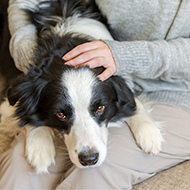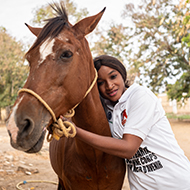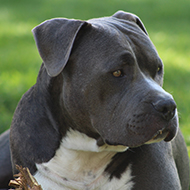PDSA issues advice to owners following rise in cases
The People's Dispensary for Sick Animals (PDSA) has received reports of suspected outbreaks of Canine Parvovirus (CPV) from several of the charity's pet hospitals.
Within the first six months of 2013, its hospitals had treated 1,800 cases of suspected CPV – a 34 per cent increase on the number of cases that were seen in the first six months of 2012.
The charity expects these numbers to rise further, so has issued advice for owners to help protect their pet from this preventable disease, which is spread through contact with infected faeces.
CPV is difficult to kill with disinfectant as it is very resilient, and can survive in the environment for up to five months, therefore it is vital that dogs' vaccinations are up to date.
PDSA is encouraging owners to ensure owners are on top of their dogs' vaccinations and boosters, since its recent PDSA Animal Wellbeing (PAW) report found that nearly one in five dogs had never been vaccinated.
These figures show that around 1.5 million dogs are at risk of CPV, as well as other potentially fatal diseases.
An infected dog will usually show signs after one week, with symptoms including vomiting, diarrhoea, blood in the faeces, tiredness and loss of appetite.
Owners who suspect their dog may have CPV are advised to keep them isolated from unvaccinated dogs, and to call their vet immediately for advice.
Claire Hinchliffe, a vet nurse at Newcastle PDSA, said: "Most of the cases we see are dogs that aren't vaccinated, or aren't up to date with their boosters. This disease causes terrible suffering for the dogs and requires very intensive nursing. Sadly, despite our best efforts, some affected dogs do die."
Image courtesey of PDSA






 Birmingham Dogs Home has issued an urgent winter appeal as it faces more challenges over the Christmas period.
Birmingham Dogs Home has issued an urgent winter appeal as it faces more challenges over the Christmas period.
